Briton's turn to pet food amid the cost of living and energy crises
When it comes to the UK the headlines couldn't be worse and in some cases shocking. For example, "UK Royal Mail workers and university lecturers begin fresh strike as inflation skyrockets", or another headline, "Briton's turn to pet food amid the cost of living crisis".
Is the situation dire in the UK as it seems, as the headlines indicate, and can the government headed by the multimillionaire Prime Minister, Rishi Sunak and his austerity budget even come close to fixing the UK economic crisis?
The UK headlines paint a doomsday scenario, but as time moves forward, it just seems to be getting worse. For example, "things are likely to get worse before they get better". This comes from the Bank of England, which has predicted a lengthy downturn.
And in addition, Britain is the only member of the group of seven economies yet to recover fully from the COVID slump.
Are things as bad in the UK as the headlines indicate?
Well, I think the question is phrased in terms of relative growth, by inference, saying that Britain is taking much longer to recover, but I think this is this has much less to do with competition between countries, and much more to do with something far more overarching, which is essentially we've been predicting this collapse and hyperinflation for some years now because of the way in which central banks have been printing money like there's no tomorrow.
And it's quite instructive that, I think, the alarm bells were ringing in the summer of 2019. Mark Carney, who is very much part of the architect of this crisis in waiting, resigned from the Bank of England on the 15th of March 2020, and gave a hospital pass to the rather intellectually challenged Andrew Bailey, who, as recently as July 2022, was saying that our job is to keep inflation at 2%, and that's what we'll do.
Clearly the Bank of England's economists, and, more importantly, the governor of the Bank of England hasn't a clue as to how this all came about. But those who were disinterested, and not part of the club that are benefiting from what's been going on over the last three years, could see this coming a mile off. In terms of how bad things are, we were predicting back in the summer that in the autumn things were going to get very bad and we're going to go through a very deep economic crisis.
But the good news is that, increasingly, there is visibility of the corruption and criminality, the amount of money that has been "laundered", for want of a better way of putting it, through this manufactured COVID crisis, the climate narrative, which is also false and has been used, under the cover of COVID, to basically turn cities into ghost towns.
I spent most of my time during the so called "pandemic" moving around London as I normally would, and the place was deserted. So in terms of economic crisis, it's no wonder when they deliberately collapsed the economy.
Clive Menzies, Researcher & Political Economy Analyst
It appears there is a certain class in Britain, mostly superrich, who were aware that the UK economy would be facing the current situation and that they profited directly from this.
However, some things don't make sense, like the GDP of the UK registering over $3 trillion despite the dire circumstances of the populace. So something is not making sense and, of course, this exemplifies the great economic inequality which the UK is plagued by.
Britain is the biggest offshore tax haven and it's has the Corporation of London, the city square mile, which is one of the biggest money laundering, regions in the world. It acts, essentially, as a place where the rich, and the powerful, and the corporate sector, hides its money, does its dirty deals.
Most of it is beyond the law, in fact that that square mile has its own jurisdiction, everything from the Lord Mayor that presides over it through to the police there, through to even through to whether the British government can even, you know, ask questions of those huge corporations and the huge amounts of money that pass through them and London itself has become, really, it's awash with dirty money from every corner of the world.
And yet, at the same time, that same Corporation of London actually has probably 30%, If not more, of the whole GDP of this country so they can switch off the button in Britain very, very easily if these huge players are upset in any way, or if the British government doesn't toe the line of the City of London. Westminster has far less power, I would really argue, than that corporation itself, so that's one thing, but the controlled demolition of the economy, which Clive certainly hinted at.
You only have to look at the sequence of events, you know, when they first flooded Britain with migrant workers from Poland and from Europe, I mean, there was there was a huge sort of issue of the worth at that time. But then what they've gone and done is the Brexit thing. They've done the migrant restriction on labor.
They've gone into this Ukraine war without thinking, they're part and parcel of the US sanctions on Iran and other place, so they can't do business, their own companies can't do business with major economic powerhouses around the world.
The COVID overreaction, and the way they dealt with that, was diabolical in and of itself and, of course, the background to all this is the great reset which we can't ignore. The context of all of this, is that, actually, globally, this idea of digital money coming through, the idea of totalitarian economies, surveillance, China style, if you like, the emergence of AI, there are a lot of things that are that the big, rich and powerful Money Mafia, as I described them, want to happen and part of it is to really teach people a lesson, bring down their expectations, have them at each other's throats with economic worries, while they get on quietly over the next 10 years, continuing to re adjust the entire economic and political, if you like, landscape according to their requirements.
Syed Mohsin Abbas, Journalist & Political Commentator
On Brexit, the British Prime Minister, Rishi Sunak, has said regarding trade, "let me be unequivocal about this, under my leadership, the UK will not pursue any relationship with Europe that relies on alignment with EU laws", further adding, "I voted for Brexit, I believe in it, and I know that Brexit can deliver".
But Brexit has not delivered. Why is the PM so adamant about what already seems to be a failed policy?
Well, the whole Brexit debate is worthy of a program at least on its own because there was no Brexit, there is no Brexit, there will never be any Brexit as long as this existing structure persists. What we had was all the things that were a matter of convenience for ordinary people like me to travel and to do business in other countries, those have been restricted, but we are in lockstep with European policy on Ukraine, on finance, on law, on everything.
So what Rishi Sunak is claiming is an outright inversion of reality. And this is a charade or pantomime that's been played ever since 2016 where I would have suggested in hindsight that the election of Trump and the referendum on Brexit were primarily to divide the 99% who were beginning to realize that we weren't run by governments and there was no political reality that, actually, money power rules everything and in order to fragment that, coming together, if you like, both Trump and Brexit were very effective in dividing populations down the middle.
But the reality is, there is no Brexit; it's an illusion. And what Mohsin was referring to in terms of this great reset, this is all in lockstep, everything's happening together. So any pretense that, you know, we're not doing as Europe are doing, I mean, you only have to look at the Netherlands and the way they're closing down farming, and they're doing the same over here.
This is a war on us all, and this is a war between centralized power, which is primarily, as Mohsin says, in the hands of those who control money, and the rest of us. And most people are unaware that we're in this war, but increasingly now I'm finding, on the ground, that more and more people are awakening to this. So their plans are not going to work and that's the second thing we can take away from this.
Clive Menzies, Researcher & Political Economy Analyst
"People Power"
In the UK a variety of sectors have taken industrial action, the ambulance service, the UK Royal Mail workers, the university lecturers are the most recent strikes amongst a host of other sectors that have gone on strike in the UK.
This is basically because of the inflation and their pay not keeping up with it.
Isn't the government worried about this, or should I say, are the people in the higher echelon, the 1%, worried that people are going to turn against them?
Well, I imagine they are worried but at the same time, there's one thing that you often see, these folks who are in that upper echelon tend to profit whether there's chaos, conflict, war or peace. They always seem to be, in some way, pulling the strings.
One hopes that the, as Clive in a lot of his research has put together this notion, that of withdrawing consent, one hopes that if the public awakens and they withdraw consent from these exploitative uterus, you know, quite psychotic institutions and individuals that are in control, then there's hope. But of course, those people, if they did wake up to this reality, then what they are trying to implement on the ground, which is that in both places like Burnley today, we've got 50% of children who are living in absolute poverty, according to certain definitions of poverty, which is I think, below 60% of inflation aligned median income, that's in 2010, but things like these, things like old people now having to turn off their heating, you know, skipping lunches, you know, not having holidays anymore, having to spend their savings in (sic) feeding kids.
These are all realities on the ground, which are already hitting home, and if they carry on, then one hopes that people will dig deeper as to why this is all happening, and they will react and respond.
And these strikes are no bad thing, this awakening of people in terms of realizing that the political economy is geared towards the billionaires who we all know became, and it's all proved that they became, hugely rich during COVID and post COVID. So it does seem as though, even now, Rishi Sunak is taking it easy on those rich folk, because their tax reliefs, etc. the caps are being taken off there, they're allowed to sort of do what they like.
And whilst they may be trying to soften the impact of energy prices, waking the people up and creating, you know, huge problems for the government. It may not be enough; people may hopefully wake up and see that the actual systemic problems will not go away by trusting the established structural elite.
Syed Mohsin Abbas, Journalist & Political Commentator
Heat or Eat
Skipping lunch each day and watching TV wrapped in blankets to keep warm is not how one couple had imagined their retirement would be. Rationing cups of tea in the face of soaring energy bills, which has become the norm in Burnley, one of the most deprived areas in Britain where most, if not all, are spending more of their income on essential goods. It has seen the sharpest increases in prices in the country.
Are we looking at the worst case scenario, just unique to this particular town, or is this widespread in the UK?
I'm sure that the people who have been playing by the rules, the rules of what Mohsin described as the Money Mafia, because they set the rules. The whole economy is geared around harvesting people's energy and resources and whatever wealth they can accumulate. And basically there will be a lot of people who will suffer as a result if they continue to play by the rules.
But what is actually happening is that people are beginning to realize that things like Council taxes, utility bills and debt are optional as to whether you repay them because the whole system has been created to harvest our energy and resources and people are beginning to wake up to that.
I've not been able to verify this, but a sizable swathe of the population in the north of England has ceased paying their council taxes. And this is just the beginning. I won't go into the lawfulness of council tax but it is unlawful and more and more people are beginning to realize that.
So there are many ways in which people are fighting back and the way that people will be able to work through this and begin to thrive is by forming communities separate from the structures and the authorities that they live under.
Because an economic crisis doesn't destroy anything other than money and money isn't worth anything; it's the food and all the infrastructure and all that we need to live on that is important. And people are forming their own groups and communities to provide health care, to resist the unlawful demands of the system, and, to grow their own food.
This is all beginning to happen, food cooperatives, cutting out the reach of the retailers from eggs, for example. There are farmers who produce eggs and the supermarket's pay them so little, that it's not worth their while to produce them. The cooperatives will now go direct to the farmers. So this system is going to be bypassed and it's going to collapse. But it's going to take time and there's going to be death and destruction in the meantime.
Clive Menzies, Researcher & Political Economy Analyst
The situation is so dire that people have resorted to eating pet food, as has been making the news. And now we have the Chancellor of the Exchequer saying that poor households should be spared much of the pain and cuts to public services.
But then you have the central government funding for the likes of Burnley, for example, having fallen by 5 million pounds a year since 2013, almost a third of its total budget.
If that is happening to the poorest of towns, then that's a pretty bleak picture. Does Rishi Sunak, or his Exchequer, understand the depth of the desperation of the people in towns like Burnley?
I think they fully understand, I think that they take their orders, as we say, from forces much higher than them. And once you have that scenario, where Britain is having to go in line with the policies that are being set by corporate money mafias that are outside of Britain, and they are essentially usurping the British electorate's democratic rights, and they are usurping Britain's independence, economic independence and political independence.
Essentially, that's what they're doing. But it's all being done in an underhand way in the background. But the fact is that whether Rishi Sunak and these people and the government itself I believe, the civil servants, I mean, they've been in this business for centuries, they know very well how things work and how the Treasury certainly isn't, you know, some would say they might be managed by half wits, but I rather suspect that they do know, but they are under orders to run the policies that they are, and have been.
So the net result, really, is, you know, at the end of the day, you've got inflation, 12%, rising over the last year and don't forget the austerity that was going on during the Tory term, over their term here, has been ongoing already, they were huge before COVID.
Certainly, there were huge rallies that were picking up against the Tory austerity lie, as it were, and those are now obviously going to return, I think, in a much bigger way, one hopes. But what's more important is that people need to look more deeply about the elitist classes which have been constantly put back in power.
If Starmer from the Labour Party comes into power, he's not any better. He's also beholden to exactly the same systemic corruption. And it's a nonsense that where these two party systems, in most of the democratic world, try to fool people that in some way there is some choice and they play this kind of "good cop, bad cop", with austerity versus reason, releasing the burden on the masses.
This game has gone on long enough. And I think it's high time people really woke up to the fact that there needs to be systemic, deep, deep change in the way we operate our political economies.
Syed Mohsin Abbas, Journalist & Political Commentator
Assuming the reset is the one that the WEF put into motion, introduced or got major prime coverage across the media in a sense, is that the great reset we're talking about, the move to green energy?
What role is the US playing in leading Europe down a path where it is, may be not ruining, but certainly affecting the industries and factories in the whole of Europe through its initiative, which is green in nature, in terms of the inflation Reduction Act, in line with which, companies from Europe are relocating to the US?
Would you put that into context the great reset scenario for us, please?
Well, in the short time, that's quite difficult. But I think when there is talk about choice, the late, great, George Carlin, the comedian, said, "it's a big club and you ain't in it. You don't have choice. You have owners". And essentially, the fact that, you know, we can refer to the US and Europe having some sort of competition and, certainly, with what's been happening with the sanctions in Russia, Europe has been sort of thrown in the deep end and it's going to suffer severely and has been made to commit some sort of energetic or economic suicide as a result.
So there is this inter country competition, but this is universal, you know, the Americans are suffering, or will suffer, no less than Europeans and Britons, and anybody else who's caught up in this great reset.
But the great reset is about recasting the way in which the world works, because the game that has been played for centuries is that in order for economic growth you go and plunder other countries. When all other countries have been plundered, there are now too many people in their view.
There aren't too many people if we had a rational economic system, right. But in that view, because it's a Hunger Games economy, where there are always more losers than winners, then they're resetting the turf. One to reduce the population and the green agenda is very much part of that.
Net zero doesn't mean net zero carbon and, you know, we are carbon life forms, it means net zero people. In other words, let's reduce the number of people. So that's part of it, but the other part of it is actually because there are more people than there are functional jobs to do, and there are many jobs that actually don't produce wealth.
Okay, and it's about substituting, as Mosin said, AI and robotics for people. So this is all part of the great reset, but it's a big complex issue that needs much more time.
Clive Menzies, Researcher & Political Economy Analyst
To conclude, looking up the UK economic crisis through the special software we have for news here, the thing that came up was Britain's Prince William, the Prince of Wales, and Catherine Princess of Wales arriving for the 2022 earth shot Prize ceremony at the John F. Kennedy Presidential Library Museum in Boston, Massachusetts.
One would think that when the UK is mired in such an economic crisis, the priorities of the Prince are inappropriate and most certainly misplaced.
I think we can say that royalty is part of that elitist structure, they are the most visible and they are easily targeted. But in reality, if you were to go to the clubs and private accommodations in Mayfair of most of this elitist mafia in London, they're not going to be affected by the bread prices and by the prices of milk going up the way they are, they're not going to be affected by energy or heat.
The reality is it's the poor man, it's the people on the ground, that are suffering and they need to start a global resistance Economy, fighting the system in that way is necessary now.
Syed Mohsin Abbas, Journalist & Political Commentator
VIDEO | Press TV's news headlines
‘Regime-change’ lobbyist cited as Time source on Iran’s riot death toll
US bishops urge ‘respect for life’ as anger swells over ICE killings in Minneapolis
US systematically paralyzing international institutions, Iran tells APA session
Iranian Embassy condemns Israeli airstrikes in southern Lebanon
10 foreign spy agencies involved in plot to destabilize Iran: IRGC intelligence
VIDEO | Gazans pay tribute to Palestinian artists killed by Israel, honor their families
Minneapolis murders by ICE – backed by Trump – push US to the brink as protests intensify


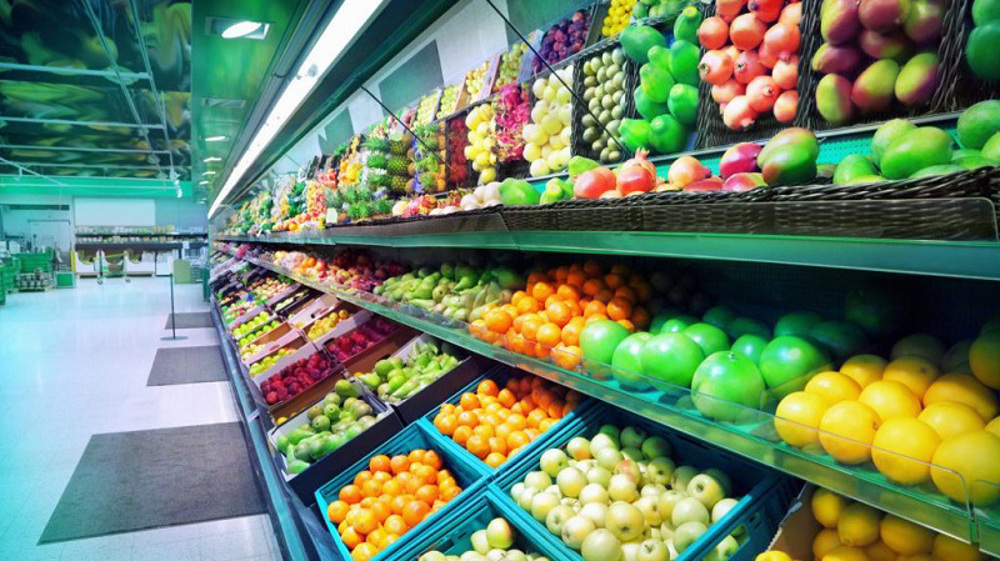
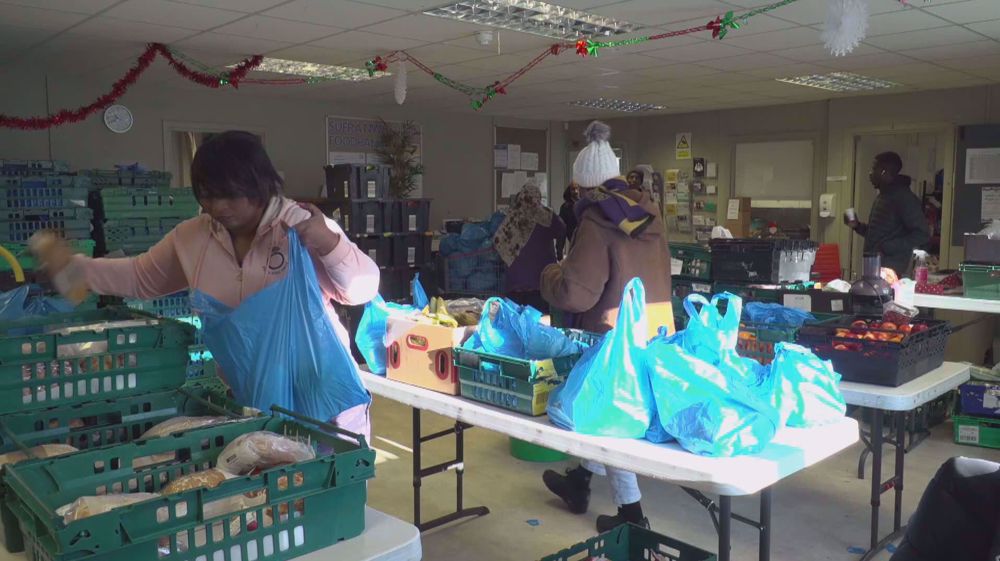
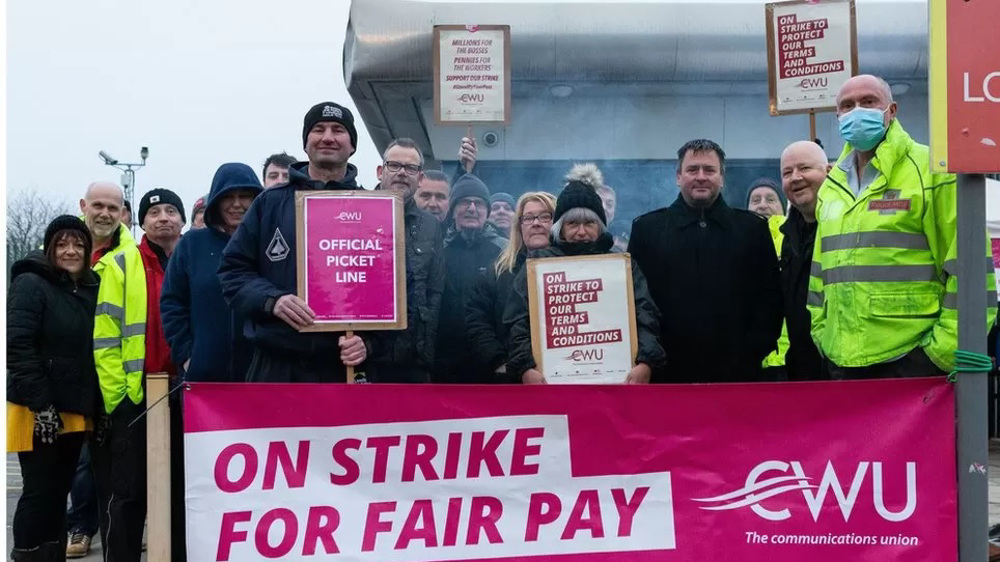
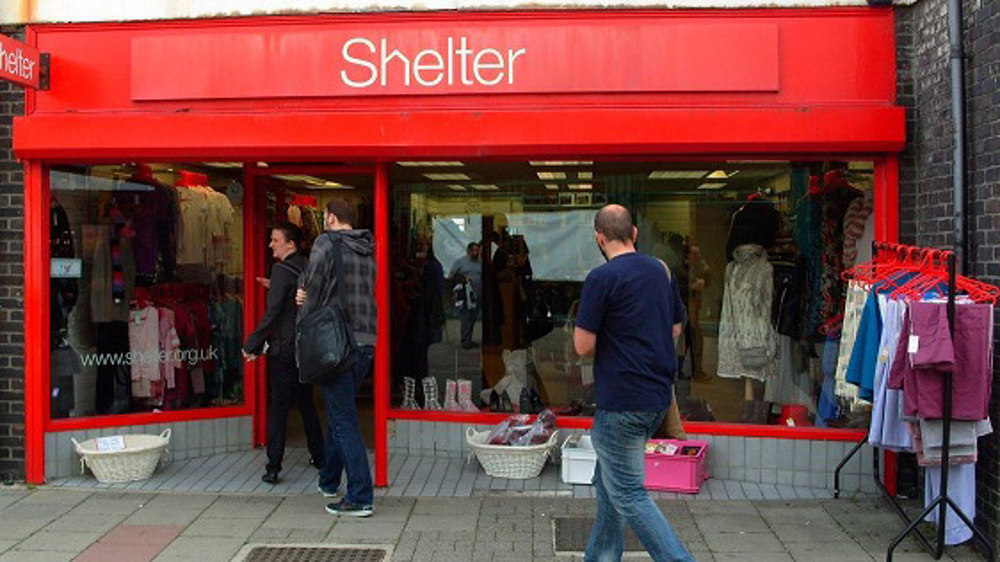
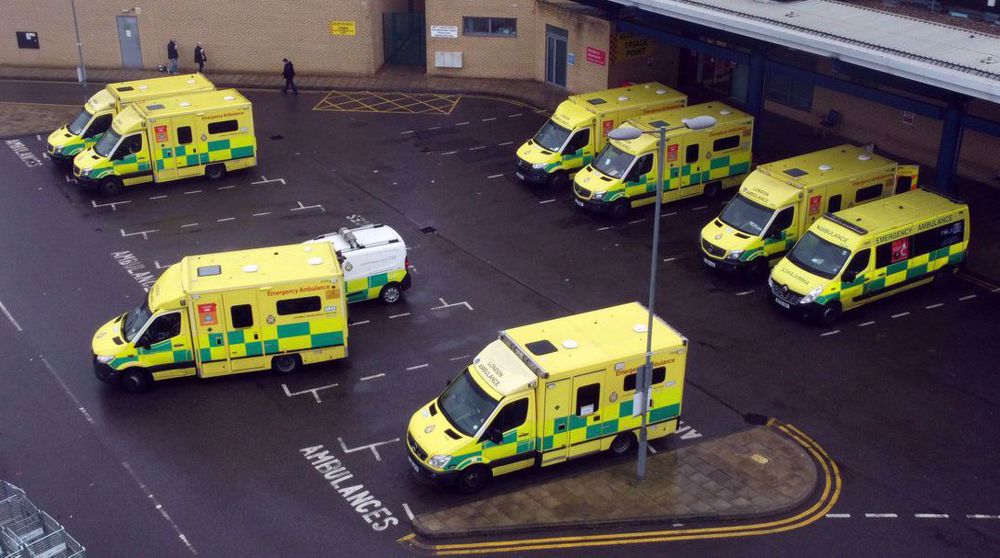
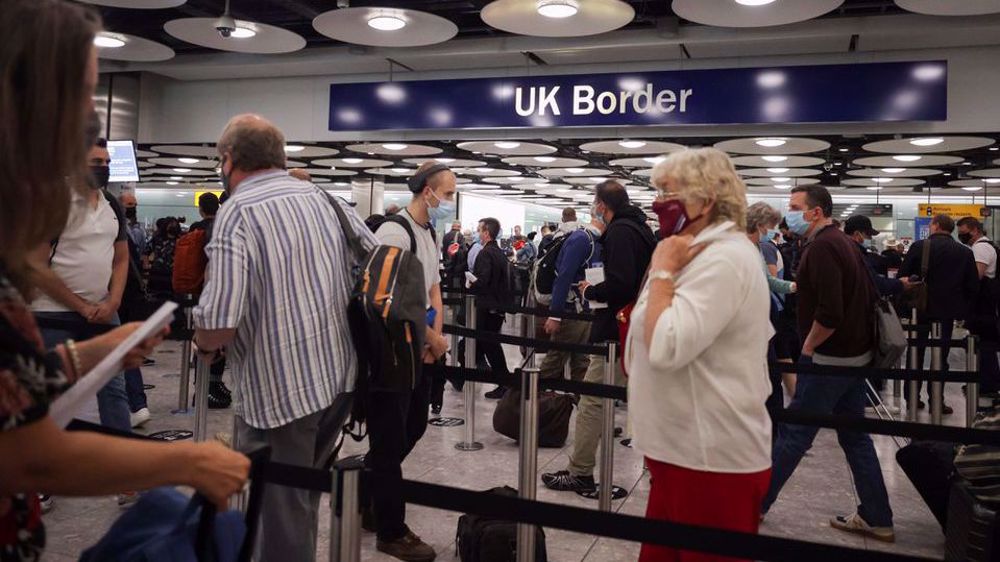
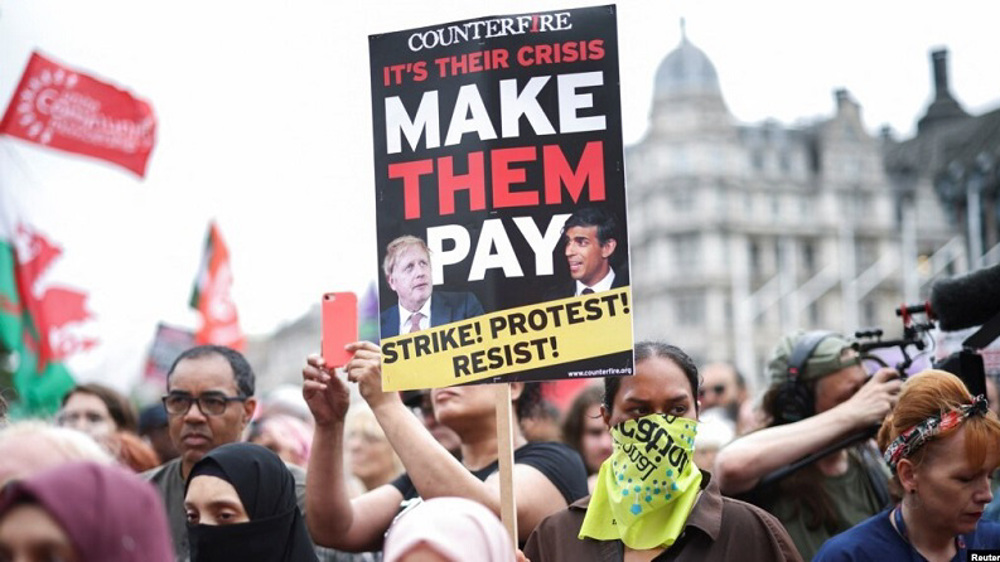

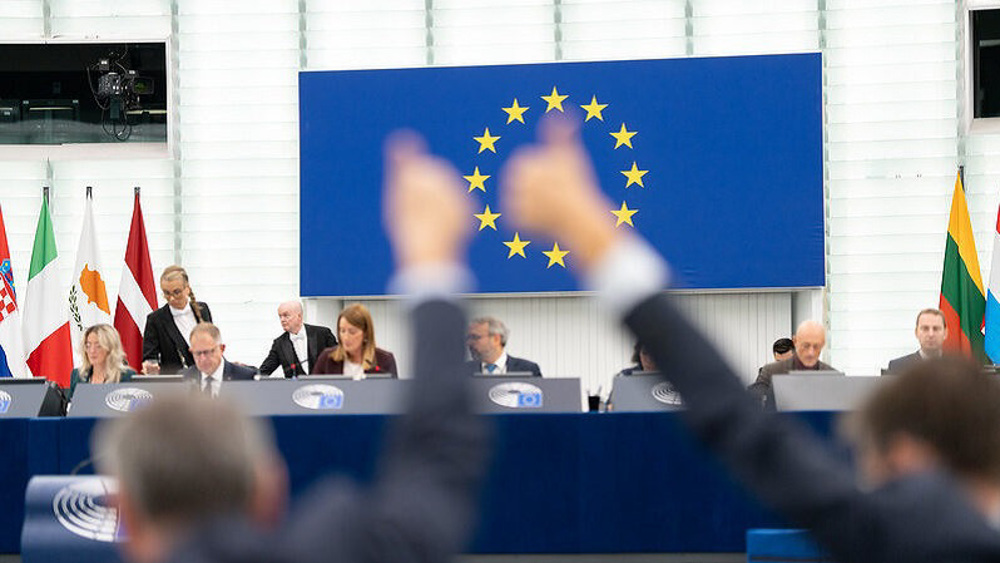
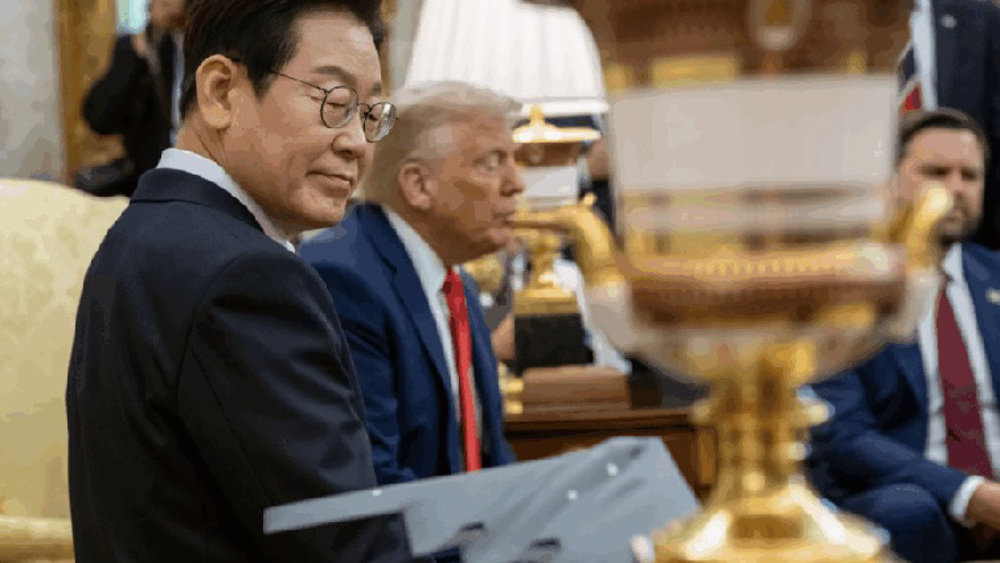



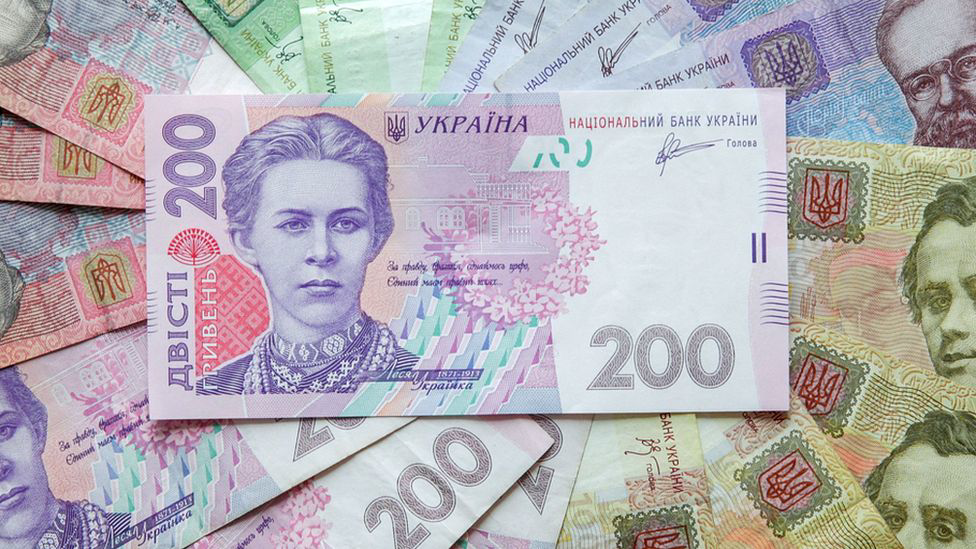

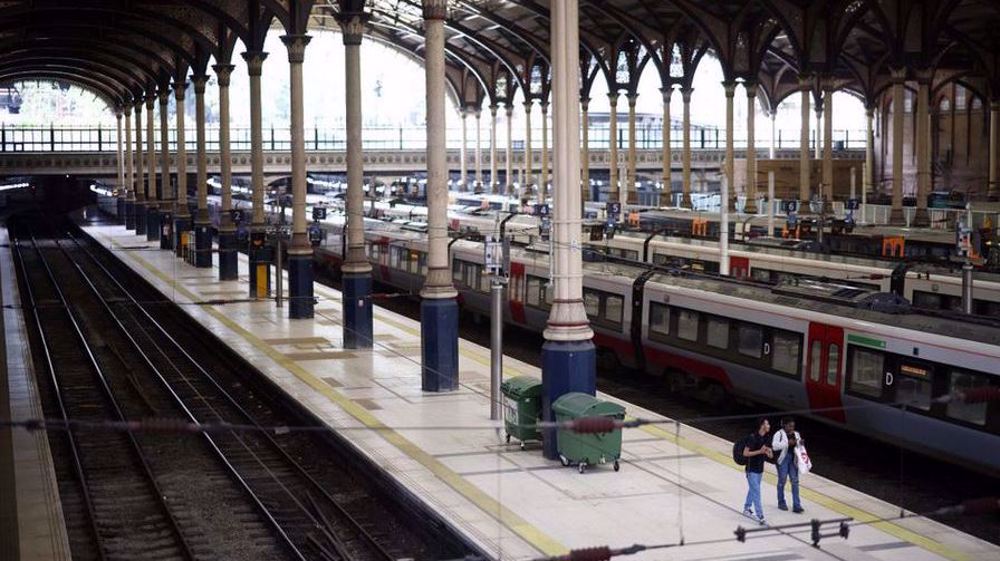
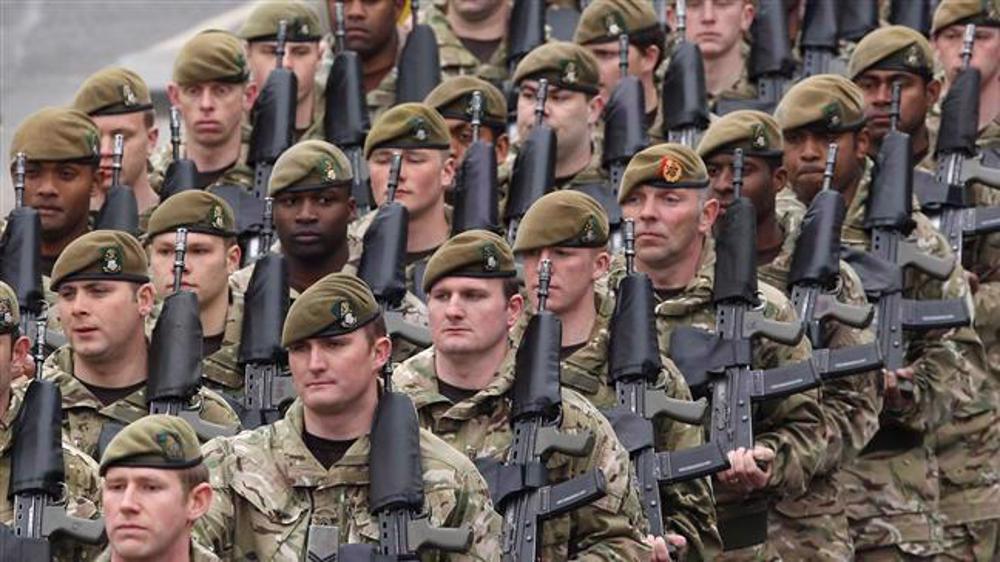
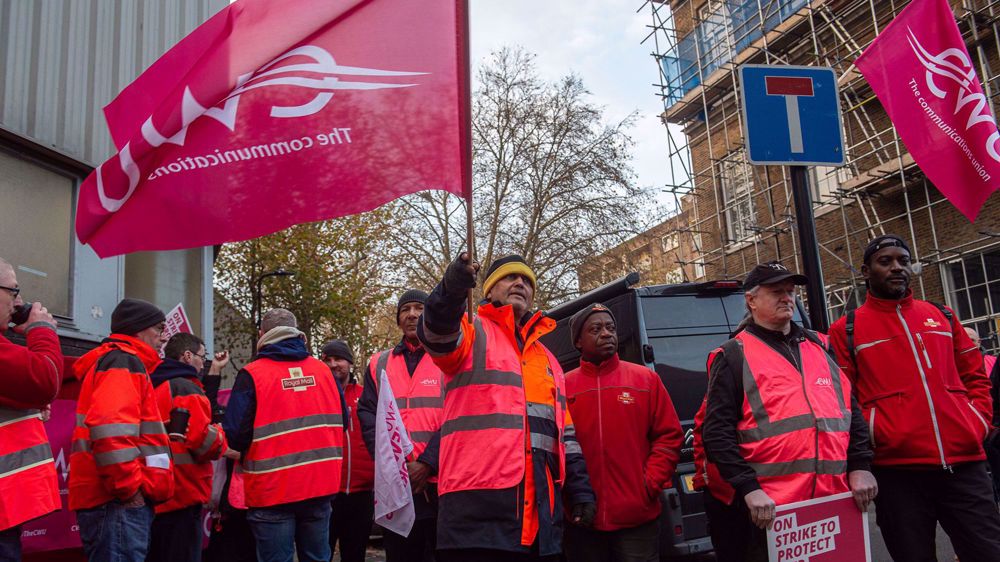
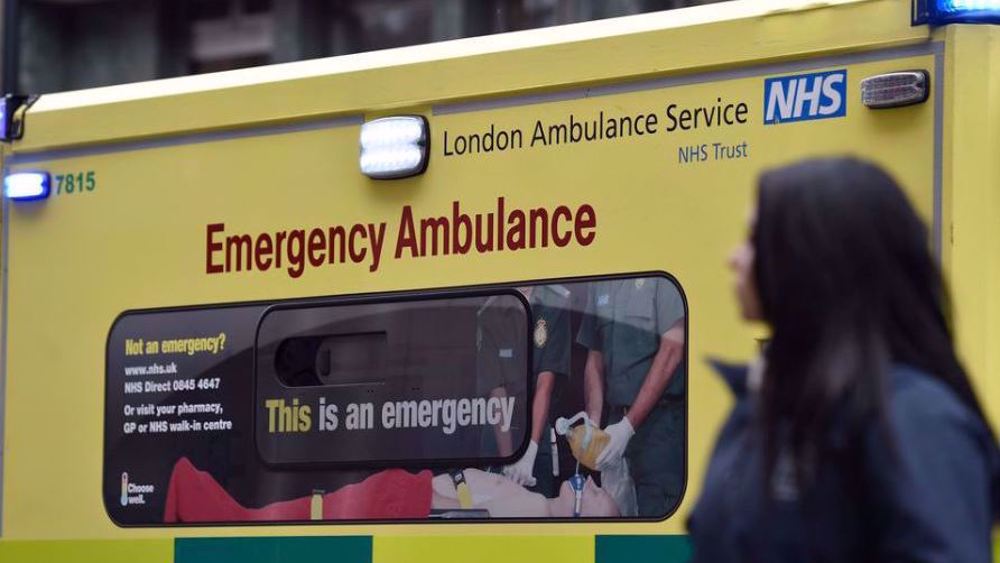

 This makes it easy to access the Press TV website
This makes it easy to access the Press TV website